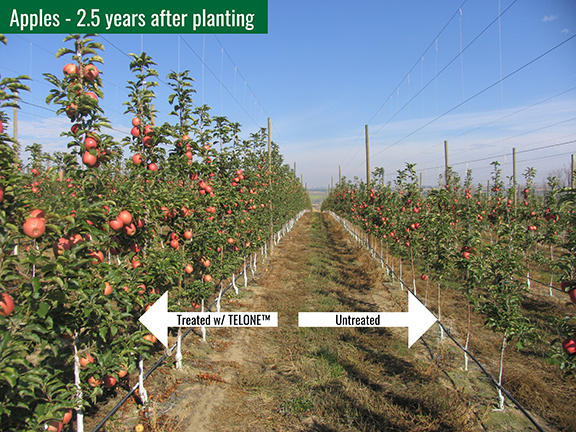Opinion: Getting To Know Floyd Zaiger
In late May, I got the chance to take one of fruit breeder extraordinaire Floyd Zaiger’s Wednesday tours. It was the first time I did one this early in the year, before summer, which meant I got to taste the Modesto, CA, man’s cherries. Remarkable. Some are approaching the size of golf balls, and they’re a deep mahogany, sweet, and crunchy-juicy. I brought some home, and my kids rejoiced. Wouldn’t it be nice if that were a common occurrence? Childhood obesity rates would dip, I’d bet.
It wasn’t just my kids who gave Floyd’s fruit top marks. The industry folks on this tour — about a dozen buyers and growers, including one of the nation’s top cherry growers, Kyle Mathison — were very impressed. (Small world: I wrote about the sustainability efforts of Mathison’s company, Stemilt, back in our March issue, which featured a photo of Kyle’s son, West, who is Stemilt’s president, on the cover.) At any rate, the fruit, as usual, was not only tasty, but huge. And it wasn’t just the cherries.
Living His Hobby
“Apricots the size of cantaloupes,” cries one buyer during the tour. “How did you keep these on the tree, Floyd?” Zaiger just smiles, as a nurserywoman answers for him: “I saw him out here with super glue early this morning.” Everyone laughs, in part just because it feels good to be out on this fine day, tasting some of the world’s best fruit with one of the best fruit breeders. Floyd’s best known for inventing the pluot, but if you go on one of his weekly tours, you’re just as apt to come away with the foremost thought that he’s a world-class nice guy.
Besides the wide variety of fruit — on this day we will taste 31 varieties of cherries, apricots, pluots, interspecific plums, and a fruit Floyd calls the nectaplum that is the single best piece of fruit I’ve ever had in my life — the tours feature an interesting crowd. Two South African brothers, Peter and Arnold, tell of a “problem” they have that any grower would envy. They’re interested in the early cherries, because when they harvest in October, they’re virtually alone in the market. Asked how they price their fruit, Peter says, “We have no idea.” Adds Arnold, smiling: “We have no competition.” Zaiger chuckles.
The tour-goers are important to Zaiger, and not just because he clearly enjoys the banter. “The next tree’s this way, gents,” he calls, pointing the way to another cherry tree. “When are we going to start shaking them?” asks one grower. Before Zaiger can answer, another cracks: “When labor goes up another dollar.” Zaiger says he values the growers’ feedback. “People ask me, ‘How do you decide (which varieties to bring to market)?’ Well, I really don’t, the growers do,” he says. “It’s better than us making up our minds, because I never saw a mother who didn’t think her baby was beautiful.”
At the next tree, as usual when the fruit’s not bite-sized, Floyd’s son Grant is slicing off pieces. First he hands one to his sister, Leith, so she can record the Brix level. “22.6,” she calls. Grant keeps slicing, handing out pieces to the tasters. Leith takes another reading: “23.6.” Floyd wonders how some of the fruit toward the top of tree, bearing huge amounts of fantastically red pluots, taste. No ladder? No problem. Floyd simply starts climbing. His son Grant makes a half-hearted attempt to dissuade him, but he’s clearly going through the motions. His dad might be getting up there in years — Floyd turned 82 in April — but on this day at least, he doesn’t show many signs of slowing down. “Everyone asks me when I’ll retire,” Floyd concludes, “and I say, ‘As soon as I find something I like to do better.’”









